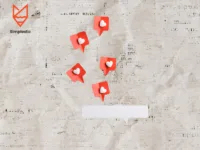How to End an Email to a Professor | Communicating with a professor via email involves more than just crafting a well-written message body; how you conclude your email is equally crucial. The closing of your email not only signifies the end of your message but also sets the tone for your professional relationship and can influence the response you receive. Below are examples of appropriate and effective email sign-offs, along with some key considerations to keep in mind when drafting your email closings.
Key Considerations When Ending an Email to a Professor
- Politeness and Respect: Always maintain a tone of respect and politeness. Remember, this is an academic setting, and your communication should reflect a level of professionalism and deference.
- Clarity and Brevity: Be clear and to the point. Your closing should succinctly reflect your respect and gratitude for the professor’s time and attention.
- Purpose of Email: Tailor your sign-off to the purpose of your email. Whether you are asking for assistance, submitting an assignment, or requesting feedback, ensure your closing aligns with your message.
- Read more: Email to Professor | How to, Tips and 15 Examples
Examples of Email Closings to a Professor
- Sincerely,
- Respectfully,
- With respect,
- With gratitude,
- Best regards,
- Kind regards,
- Warm regards,
- Regards,
- Cordially,
- Yours truly,
- Yours sincerely,
- Thank you for your time,
- Thank you for your consideration,
- Appreciatively,
- With appreciation,
- With sincere thanks,
- Thanks again,
- Thank you,
- Many thanks,
- Looking forward to your feedback,
- Eagerly awaiting your response,
- Gratefully,
- Respectfully yours,
- With warm regards,
- With highest regards,
- In appreciation,
- In gratitude,
- With all due respect,
- Anticipating your response,
- With eager anticipation,
- Hopeful for your feedback,
- With humble gratitude,
- With profound thanks,
- Sincerely yours,
- Yours respectfully,
- Thank you in advance,
- Thank you for your guidance,
Proper Format for a Professional Email
To ensure your email not only ends well but also meets professional standards from start to finish, consider the following format:
- Salutation: Always address the professor formally using “Dear [Professor’s Last Name],” unless directed otherwise.
- Introduction: Briefly state your reason for writing. If this is your first email to the professor, introduce yourself.
- Body: Clearly state your inquiry or the purpose of your email. Keep it concise and to the point.
- Closing: Choose one of the sign-offs listed above followed by your full name. If it is an ongoing conversation, you can add a reminder of your class or something that identifies you, such as “Jane Doe, [Your Course Name] student”.
Here are another 37 ways to end an email to a Professor:
- Thank you so much for your time, and I look forward to hearing from you soon!
- Thank you so much for your time and consideration. I’m really looking forward to hearing from you soon!
- Thanks for everything you’ve done for me, and I look forward to seeing you in the future.
- Thank you again for taking the time to review my work, and I look forward to hearing your thoughts.
- Thank you so much for your time and consideration!
- Thank you for your time and for your advice. I look forward to seeing you soon.
- Thank you so much for your time, Professor!
- Looking forward to hearing back from you soon!
- Thank you for taking the time to talk with me today. I really appreciate your advice, and I’m excited to see how it all turns out.
- Thank you for your time and for giving me the opportunity to share my ideas. I look forward to hearing from you soon.
- Thank you for taking the time to review my paper. I am excited to learn from the feedback!
- Thank you so much for your support. I really appreciate the helpful information you shared and will use them to improve my skills.
- I appreciate your time and consideration, and look forward to hearing from you soon!
- Thank you for sharing this very well-researched and informative paper.
- Thank you again for your time!
- I hope you have a great day!
- Thank you for your time and consideration. I look forward to hearing from you soon.
- Thanks for considering my request. I look forward to hearing from you soon.
- Thanks for your help! I’m really excited about the work we’re going to do this semester.
- Thank you for your time and consideration, Professor. I look forward to hearing from you soon!
- Thank you for the opportunity to work with you, and I look forward to hearing from you soon!
- I am so excited to work with you! I look forward to hearing from you soon.
- Thanks for all the help!
- I really appreciate your time and expertise.
- I look forward to working with you!
- Please accept my best wishes,
- Thank you for your time, Professor. I appreciate your feedback and will use it to improve my work.
- Thanks so much! I really appreciate the time you spent on this and look forward to seeing your feedback.
- Thank you so much for your time and attention! I can’t wait to get back in the classroom and learn some more from you.
- I am excited to join your class and I look forward to meeting you soon.
- Thanks for your time and input! I’ll be sure to keep you in the loop on what we come up with.
- I do hope you have a great week, and I look forward to hearing from you soon!
- Thank you so much for taking the time to read my email.
- Thank you again for your time and advice, Professor.I look forward to hearing from you soon!
- Thank you for your time! I really appreciate the opportunity to learn more about this topic.
- I look forward to hearing from you soon.
- Thank you for your time and consideration.
Crafting a thoughtful, professional email to a professor is crucial for making a good impression and establishing a respectful academic relationship. Whether you’re requesting information, submitting work, or expressing gratitude, always end your emails in a manner that reflects respect, politeness, and professionalism. By choosing an appropriate sign-off from the examples provided, you can ensure that your communication remains effective and appropriate for academic correspondence.




